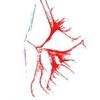22.8.2014 | 10:18
Samanburšur į löggjöf um lķftękni į noršurlöndum
Norręna lķfsišanefndin lét gera śttekt į löggjöf um lķftękni og skyld mįl į noršurlöndum. Skżrsla um žetta hefur veriš gefin śt, ķ samstarfi viš Nordforsk, og er ašgengileg į netinu į vef Lķfsišanefndarinnar. Sirpa Soini ritstżrši verkinu, en sérfręšingar į öllum noršurlöndunum komu aš žvķ. Ķ inngangi skżrslunnar segir:
The Nordic Committee on Bioethics was established in 1996. However, Nordic collaboration in the biotechnological arena started as far back as 1987. Many new issues have emerged since then; for instance, in connection with the ability to read the entire genome, examine embryos before implantation and use stem cells for therapeutic purposes.
One of the tasks of the Nordic Committee on Bioethics is to follow legislative developments within the sphere of biotechnology in the Nordic countries. The Nordic countries have adopted surprisingly different regulatory approaches to sensitive biotechnological issues, e.g. assisted reproduction and prenatal diagnostics and screening.
In 2000, the Nordic Council recommended charting the legislation and regulations pertaining to biotechnology in the Nordic countries. The first report was published in 2003, with a second, broader overview in 2006. Given the rapid progress of technology and the emergence of legislation to regulate the field, it is due time to update the tables from the previous reports. The European Union is increasing regulation of various areas of biotechnology, but its mandate in the field of health basically remains complementary. However, to meet common safety concerns, the EU may adopt measures that set high standards of quality and safety of organs, tissue, blood, and medicinal products and devices. Thus areas such as clinical trials, market authorisation of medicinal products and handling of tissue and blood lie within the EU’s sphere, whereas access to assisted reproduction and genetic testing, for instance, do not. EU legislation is binding for Denmark, Finland and Sweden, but Norway and Iceland are not.
In addition to EU legislation, other supranational legislation may affect the legal landscape as well. The most important international biomedical document is the Council of Europe’s Convention for the Protection of Human Rights and Dignity of the Human Being with regard to the Application of Biology and Medicine from 1997 and the additional protocols. The legal status of the Convention and its protocols are listed in Table 16.
We hope that these tables can give the reader an overall picture of the legislation in the Nordic countries. However, it should be noted that the format cannot provide comprehensive information with all the necessary details. We therefore recommend contacting the respective country rapporteurs listed below.
Nįlgast mį skżrsluna ķ heild sinni į vef norręnu lķfsišanefndarinnar (NCbio).
egislation on biotechnology in the Nordic countries – an overview 2014
Meginflokkur: Vķsindi og fręši | Aukaflokkur: Erfšabreytingar og ręktun | Facebook
Nżjustu fęrslur
- Eru virkilega til hęttuleg afbrigši veirunnar sem veldur COVI...
- Grunnrannsóknir eina ašferšin til aš skapa nżja žekkingu og e...
- Lķfvķsindasetur skorar į stjórnvöld aš efla hlut Rannsóknasjó...
- Eru bleikjuafbrigši ķ Žingvallavatni aš žróast ķ nżjar tegundir?
- Hröš žróun viš rętur himnarķkis
- Leyndardómur Raušahafsins
- Loftslagsbreytingar og leištogar: Feršasaga frį Sušurskautsla...
- Genatjįning ķ snemmžroskun og erfšabreytileiki bleikjuafbrig...
- Fjöldi og dreifing dķlaskarfa į Ķslandi
- Staša žekkingar į fiskeldi ķ sjó





Bęta viš athugasemd [Innskrįning]
Ekki er lengur hęgt aš skrifa athugasemdir viš fęrsluna, žar sem tķmamörk į athugasemdir eru lišin.